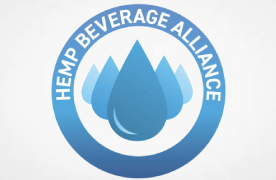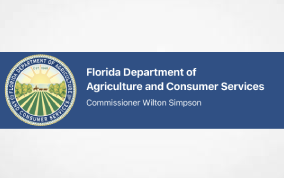IRS Updates CTR Exams – While we do a very significant amount of writing for our clients, partners, friends and the cannabis industry in California as a whole, we also do a very substantial amount of reading, and perhaps our three “go-to reads” are
Tax Talk – Virginia La Torre Jecker, Esq or Let’s Talk About US Tax“ – Virginia is the expert to turn to when it comes to US tax matters affecting international individuals Many US persons face US tax issues simply because they live abroad, purchase foreign assets or have a non-US spouse.
Tax Litigator Blog written by the attorneys at Hochman Salkin Toscher Perez P.C. whom we have known for quite some time, and we regard as among the best of breed tax litigators and criminal tax attorneys on the West Coast.
John Schroyer’s Columns at MJBizDaily – John is one of the few cannabis industry reporters in that covers the legal industry in California that understands what investigative journalism is all about.
Each of the three sources listed above has unique features and content that complement our ability to keep our followers informed and up to date. We thought that preface was long overdue, and now to today’s article.
IIRS Updates CTR Exams
Steve Toscher, Esq. has written an article that seeks to summarize an update to Internal Revenue Manual [“IRM”] Sec. 4.10.4 entitled “The IRS Is Using Its Big Data and Reminds Us and Its Agents That They Have Access to Records of Large Cash Transactions at Financial Institutions“.
The IRS has recently provided interim guidance to clarify actions IRS Examiners musttake to analyze and document Currency Transaction Report (CTR) data during an audit. The Guidance, which is effective immediately, will be incorporated into IRM 4.10.4, Examination of Returns, Examinations of Income.
Prior to incorporation, IRM 4.10.4 provided very little guidance on when and how to use the Financial Crimes Enforcement Network’s (FinCEN) Currency Transaction Reports [See Structuring Rules ]. However, this new guidance assists examiners during an audit of a taxpayer’s returns and income.
The Guidance
Financial institutions are required to report all transactions of currency that exceed $10,000 by filing a FinCEN CTR. Information from this filing may be used by an examiner to decide whether to use additional auditing techniques, question sources of income for which tax has not been withheld, and generate leads for potential unreported income, money laundering transactions, and other tax avoidance schemes.
IRS Updates CTR Exams
A CTR provides information that an individual was involved in a transaction that exceeded $10,000. It does not provide information as to who the money belonged to. To remedy this situation, the Guidance has provided the following actions an examiner should take to determine whether the individual names on a CTR is the taxpayer in question:
- The examiner must confirm the information on the CTR is for the taxpayer in question.
- The examiner must confirm the bank account on the CTR is the taxpayer’s, or whether the bank account belongs to an entity related to the taxpayer.
- The examiner must trace the transaction on the CTR to the taxpayer’s bank account.
- The examiner must determine the origin of the transaction.
- If the examiner is unable to establish a relationship between the CTR and taxpayer through an analysis of the financial accounts, the examiner should ask the taxpayer if they were involved in cash transactions over $10,000.
- If the examiner cannot trace the transaction and the taxpayer denies involvement in transactions over $10,000, the examiner may consider issuing a summons for the bank account listed on the CTR.
Examiners must document the steps taken to trace a CTR and their conclusions.
IRS Updates CTR Exams
Our view is that Mr. Toscher’s analysis is an excellent start, but it fails to highlight a number of concerns that perhaps are more apparent to us as CPA’s. They include
A rather unexpected and inept focus by the document’s authors on withdrawals from accounts and financial institutions for expenditures, as the funds in those accounts, have already been traced.
Financial institutions, including casinos, must report each receipt and each withdrawal of currency exceeding $10,000 by filing a FinCEN Currency Transaction Report (CTR). See IRM 4.26.5.4.1, Currency Transaction Reports, for information on the FinCEN forms used for reporting CTRs.
The concept of FinCen Query Request [‘FCQ”] needs to be elaborated upon [1]
IRS Updates CTR Exams
The Title 31 implications for structuring transactions to avoid the rules require further development, particularly for non-plant touching businesses that serve the cannabis industry, particularly Circular 230 Practitioners.
IRS Updates CTR Exams
[1] FinCEN Query (FCQ) is an on-line database query application that replaced the Web-based Currency and Banking Retrieval System (WebCBRS) on February 1, 2014, for all Bank Secrecy Act (BSA) users and on March 31, 2014, for all other IRS users. The FCQ application was developed by the Financial Crimes Enforcement Network (FinCEN) as part of the BSA Information Technology Modernization Program and is accessed via the secure FinCEN Portal at https://bsa.fincen.gov. The FCQ application supports a wide range of law enforcement and regulatory users for access to perform report and data information queries on the millions of BSA reports housed within the FCQ database. The system is designed to provide users with expanded query capabilities, including the ability to query multiple fields, use of four available search options, and use of various search methods to narrow or expand query results.
BSA report filings, as required under 31 USC Chapter 53 and 31 CFR Chapter X, are input and processed through the FinCEN BSA E-Filing System located at http://bsaefiling.fincen.treas.gov. E-filing of these reports became mandatory on April 1, 2013, with the exception of the Report of Foreign Bank and Financial Accounts (FBAR) and Form 8300, Report of Cash Payments Over $10,000 Received in Trade or Business. E-filing of FBAR became mandatory on July 1, 2013. Form 8300 filers currently have the option to file these reports electronically or in paper format. FinCEN Form 105, Report of International Transportation of Currency and Monetary Instruments (CMIR), is submitted and processed through the U.S. Customs and Border Protection in the Homeland Security Department.

















